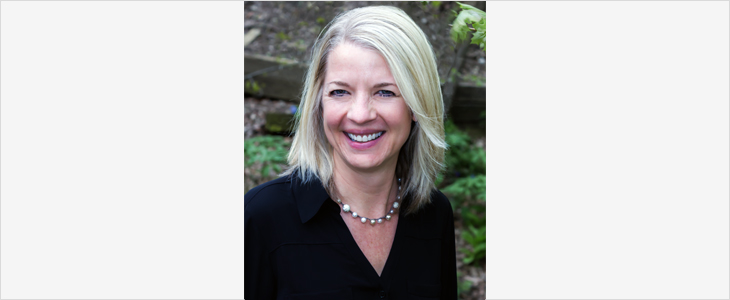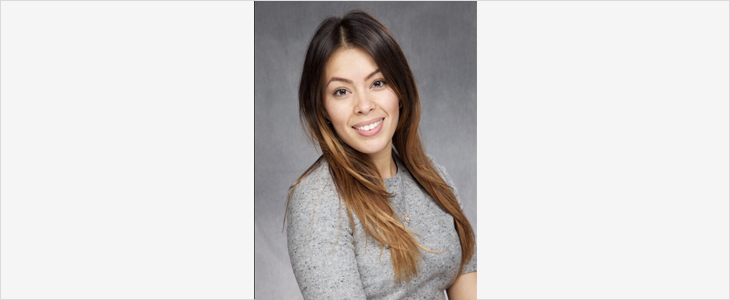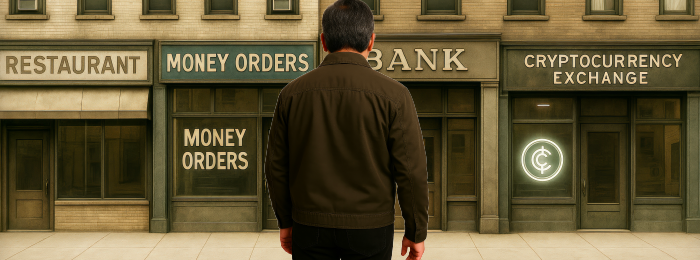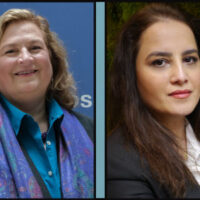
ACAMS Today sat down with Dr. Katherine Jeffery, chief marketing officer and co-founder of MADE BY FREE WOMEN, to talk about her low-profit social enterprise and how their work is allowing female artisans in India to find days of freedom.
Jeffery is committed to helping those who are vulnerable and has served different populations over the years. This included teens who had gone astray and found a place of transformation in the mountains of North Carolina, children who had to leave their families and were placed in foster care, and college students who were passionate about growing into who they were created to be. Each group was remarkable and resilient in their own way.
Jeffery is also a culture-shaping leader, coach and visionary with over 20 years of experience developing and studying leaders in a variety of holistic environments. Along with CAUSEGEAR, she consults with organizations on the generational shift that is happening in the workplace today. Her doctoral research focused on the millennial generation, their view of leadership and the way it impacts organizations today. She holds a Bachelor of Arts in biology and a Bachelor of Science in psychology from Indiana University, a master’s in counseling from Clemson University, and a doctorate in education.
ACAMS Today: When and how did you learn about the reality and effects of human trafficking (HT)?
Katherine Jeffery: I used to run a therapeutic foster care program. This is where I first became aware of the reality of HT and its impact on the most vulnerable groups of people.
AT: What inspired you to start this organization?
KJ: My husband was over in Nairobi, Kenya and was visiting one of the largest slums in the area. He met some women who were HIV-positive and had small children. They were making ethnic jewelry out of bones they were getting from the trash and carving. Roughly, $3 per day was their income. They asked him to bring the jewelry back to the U.S. and sell it. He told them that if he did, it would only help them one time. He then asked them how much they needed to buy their medicines, send their kids to school, have food, etc. They said, “$8 per day.” He knew there had to be a business model that could support this—because he grew up in a family of business owners. This is what started us on this journey. We both had a passion for India. India is also the second country with the highest number of truly impoverished people.1 We want to spend our time and resources providing opportunities for others to not only flourish, but also to have hope.
AT: Your website states, “40 percent of those in slavery today are in India with females making up 70 percent of this number.” Can you expand on the cultural elements that make females in India the highest percentage of the population in slavery?
KJ: Unfortunately, multiple elements contribute to this percentage:
- In different parts of India, women and girls are not regarded as having the same value as men and boys;
- Due to the social class system, which is still prevalent, those in the lowest castes are not afforded the opportunity to pursue not only the more desirable jobs, but also the highest-paid jobs;
- The extreme poverty leads to being deceived, sold or trafficked into slavery;
- If anything happens to a woman’s husband (disabled, abandonment, etc.), the woman is left to fend for herself and her children with few to no options available.
AT: Tell us about the different challenges of starting an NPO.
KJ: CAUSEGEAR and our MADE BY FREE WOMEN line is a low-profit social enterprise. Purpose prevails over profit—we are a low-profit limited liability company. For our organization, profit is a lower priority over purpose and with our commitment to providing higher-paid jobs in the industry, it strains our financial capacity. In addition, we are seeking to change consumer behavior in one of the most established and competitive industries in the world.
AT: Lately there is more access to information about HT, how can people be actively involved with this cause?
KJ: We encourage people to become conscious consumers both personally and when buying gifts for others. Every time someone shifts their dollars to MADE BY FREE WOMEN, not only does it support a day of freedom for the female artisan, it offers an opportunity for the consumer to share the story with each person who receives it and/or sees the products. In addition, we encourage companies to shift their swag (t-shirts, journals, totes, bags) and corporate gifts so that the purchases they are already making produce a positive effect in the world. We tag each item with the number of days of freedom that were provided through the overall purchase. Marketing dollars become part of the corporate social responsibility and everyone can feel good about it!
AT: How was your experience at the ACAMS Vegas conference? Any notable moments with our members?
KJ: There were so many! It seemed that our presence there allowed those who do so much work behind the scenes in this fight to engage their hearts in a very real and tangible way. One of my favorite stories was from a man from India who is tied to the Indian government but works in the U.S. He bought three pouches, one for his wife and two for his daughters. He took them home and his daughters, ages eight and ten, asked him what MADE BY FREE WOMEN meant. He explained to them that there are women in the world who are forced to do things against their will. After he told them about what we were doing, they decided, as a family, to be more engaged in the fight in their own community—starting with their purchases. In addition, he had already emailed his contacts in the Indian government to advocate for change. As I read his email, I teared up. Just the statement of the brand itself is moving people to action. What more can we hope for?
AT: Where on your website can people go to contribute to the fight against HT and slavery?
KJ: Access the shop page, make a purchase. We fund the fight/cause through purchases and jobs that change lives.

ACAMS Today sat down with Emily Bolliger-Bejarano, CAMS, anti-money laundering (AML) specialist at BMO, to talk about her volunteer work with MADE BY FREE WOMAN and the opportunity that compliance professionals have in the fight against HT.
Bolliger-Bejarano has been in the banking industry for fourteen years—seven of those in the AML field. She attended Elgin Community College, majoring in criminal justice and has always focused on giving back within her community. Aside from her work in compliance, Bolliger-Bejarano volunteers as a mentor for Stop-It, a program that offers direct services to all survivors of sex and labor trafficking. Her work here has helped her connect with various organizations and fair trade vendors that increase her awareness on the issues related to HT and help provide clarity in both lines of her work, as well as inspire her to show others how they can help.
ACAMS Today: When and how did you learn about the effects of HT?
Emily Bolliger-Bejarano: In college, while taking a criminal justice course, the professor showed us a video of children that were being trafficked for sex in foreign countries. I had never been so devastated in my entire life. We learned why there was a market for it; based on individuals paying for it from all walks of life, traveling near and far to commit these heinous acts.
AT: How did you connect with MADE BY FREE WOMEN?
EBB: We connected through a Chicago conference aimed to raise awareness and share resources through various public sectors facing this epidemic daily, such as hospitals, nonprofits, police departments and legal officials. I organized vendors to be there that were focused on combating this issue and met Katherine Jeffery, chief marketing officer and co-founder of the remarkable company.
AT: What inspired you to become an advocate for their organization?
EBB: I was immediately captivated by their mission and purpose. Their idea to prevent and decrease the risks of HT—where this is all too common—by providing jobs and helping victims overcome poverty. There are great companies that give back to those in need, but I love how they are taking preventative measures to bring the statistics down where people are affected the most.
AT: What is your direct role or collaboration with MADE BY FREE WOMEN?
EBB: I am a volunteer advocate and enjoy connecting those who would like to make a sustainable difference in the world as it pertains to HT, slavery and severe poverty. I practice this by making conscious purchases that meet my needs while also helping others, recommending products to friends, and connecting industries that can demonstrate their core values and brand through supporting MADE BY FREE WOMEN. Recently, at BMO we held a luncheon where one of the founders came in and shared their story. It really drove home a portion of our work in AML and the bigger picture of this widespread issue.
AT: How is this partnership helping compliance professionals give back?
EBB: This partnership is bringing awareness to compliance professionals about the unique, tangible and sustainable opportunity to help fight HT at its core. I believe that compliance professionals have a distinct understanding around the criminality of this issue and want to work proactively in the fight against HT. MADE BY FREE WOMEN offers a tangible and practical way that each of us can help!
- Poverty & Equity Data Portal India, The World Bank, http://povertydata.worldbank.org/poverty/country/IND/










